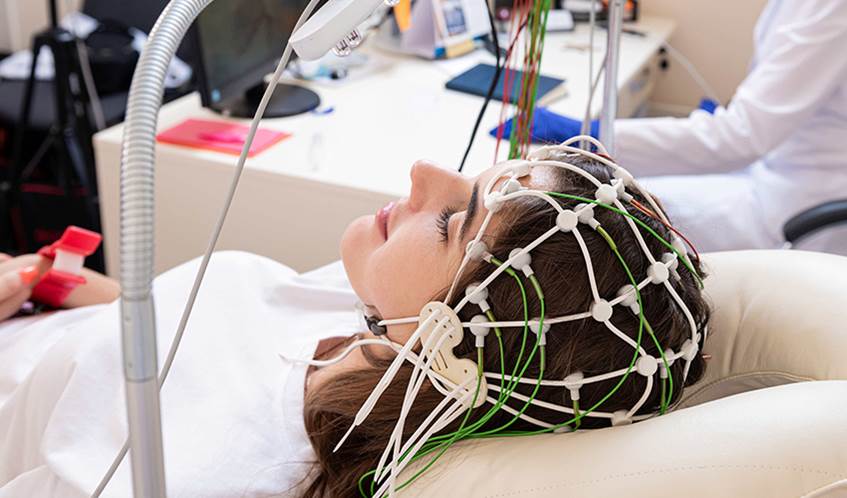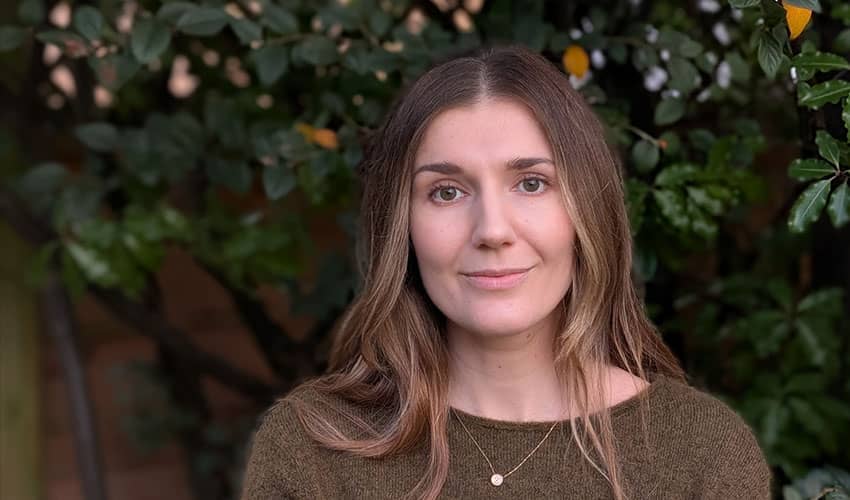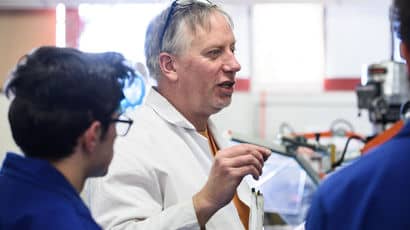New funding for researchers to develop trustworthy clinical AI for assessing brain activity

UWE Bristol researchers have received funding from UK Research and Innovation (UKRI) to help bring their innovative brain-monitoring AI technology closer to real-world use.
Their project, MED-SHED, is one of just 48 selected across the UK to receive support through UKRI’s Proof of Concept programme, which helps researchers turn breakthrough ideas into businesses or services to improve lives.
Led by Dr David Western, the team has developed advanced Artificial Intelligence (AI) models that can interpret brain activity through EEGs with accuracy that meets or exceeds that of human experts.
EEG or electroencephalography is a non-invasive method for recording brain activity and is a vital tool for diagnosing and monitoring neurological conditions such as epilepsy, sleep disorders, and brain injuries. However, its full potential in clinical practice is currently limited by a significant shortage of highly trained interpreters, along with variability in human interpretation and the inherent complexity of the data. This workforce crisis was highlighted by the Association of British Neurologists in 2020.
The UWE Bristol project addresses these challenges by using recent, groundbreaking advances in AI for clinical EEG classification. The team has achieved state-of-the-art accuracy, significantly exceeding what was previously thought possible and performing as well as, or better than, human experts when tested on the most widely used clinical EEG research dataset.
Now the team are seeking to translate this research into clinical practice, to use real NHS data, and to explore a social enterprise model – such as a Community Interest Company (CIC) – to ensure that the technology is developed and deployed in a way that prioritises public benefit, transparency and trust.
Dr Western said: “This project is timely given the growing societal burden of neurological conditions, the documented interpreter shortage, the rapid advancements in AI, and the increasing focus on responsible AI development and secure health data environments. By focusing on validation and establishing a trustworthy route to market, this project will de-risk the clinical translation of our innovative AI technology.”
The proposed work will lead to significant benefits for patients and healthcare providers. Potential impacts include improved accuracy and efficiency in EEG interpretation, leading to faster diagnosis, better treatment decisions, and ultimately, improved patient outcomes. Addressing the interpreter shortage can also lead to wider accessibility of EEG monitoring, particularly in critical care settings, enabling earlier detection of serious conditions.
Professor Charlotte Deane, UK Research and Innovation’s (UKRI) Research Commercialisation Executive Champion, added: “These projects are a powerful demonstration of the UK’s talent for turning cutting-edge research into real-world solutions.
“From health and sustainability to quantum and creative technologies, they reflect the extraordinary breadth of innovation being nurtured across the UK’s research base.
“UKRI’s new proof of concept programme is all about helping researchers take that critical next step toward commercialisation, ensuring that bold ideas are not just published but put into practice where they can deliver tangible impact.
“I’m excited to see how these diverse and dynamic projects progress.”
Science Minister Lord Vallance said: “UK universities are renowned for world-class research, but we must do more to encourage and support the experts behind it to bring their discoveries to market – building companies, driving growth and helping to improve people’s lives.
“From simpler ways of diagnosing illnesses to AI tools plotting accessible routes, we are giving promising projects the early support that can help them get off the ground, benefitting us all and growing our economy.”
Related news

16 February 2026
UWE Bristol researchers awarded grant to explore impact of asset recovery on offenders
UWE Bristol academics have been awarded funding to explore of the impact of asset recovery on deterring offender behaviour and disrupting crime networks.

10 February 2026
Work by UWE Bristol lecturer features in Government’s National Cancer Plan
Work by a UWE Bristol academic has been included in the Government’s National Cancer Plan.

23 January 2026
On-demand minibus services beneficial in rural areas but face financial challenges, trials suggest
Trials of ‘demand responsive transport’ minibus services boosted connectivity for people in rural and suburban areas, according to a new report produced by UWE Bristol researchers.

18 December 2025
UWE Bristol professor appointed National Institute for Health and Care Excellence CEO
Jonathan Benger CBE, Professor of Emergency Care at UWE Bristol, has been appointed as the new chief executive officer of the National Institute for Health and Care Excellence (NICE).

17 December 2025
Findings revealed from first UK study into experiences of mothers who are survivors of rape pregnancy
UWE Bristol academics have revealed the findings of the first UK-based study of the experiences of mothers who are survivors of rape pregnancy.

11 December 2025
Social media influencer work is far more demanding than it looks, research finds
A study exploring the mental health impacts of social media influencer work has revealed that life online is far more demanding than it appears.

25 November 2025
UWE Bristol experts join film Q&A exploring music and melodrama
Academics will take part in the Cary Comes Home Festival, with a post-screening Q&A exploring music, melodrama and emotional storytelling in classic cinema.

17 November 2025
Urgent reform needed to support ambulance-delivered end of life care, study finds
More than three quarters (78 per cent) of paramedics sometimes fear doing the wrong thing when caring for people in the last year of life, new research has found.

13 November 2025
Bristol’s screen industry experiences “boom-and-bust cycle” after post-pandemic recovery, new research from UWE Bristol finds
New research from UWE Bristol provides detailed insight into Bristol's screen sector.

13 November 2025
New AI research to revolutionise animal welfare
A UWE Bristol research project will combine behavioural science and AI to create technology that understands not only what animals do, but how they feel.

10 November 2025
Lessons from Low Traffic Neighbourhoods will drive better public engagement, study finds
Lessons from Low Traffic Neighbourhoods have informed a new toolkit to improve engagement with the public on challenging local street issues.

06 November 2025
First-of-its-kind study aims to help more people spend their final days at home
A new study will explore how architectural design could support end-of-life care in domestic settings.
You may also be interested in

Media enquiries
Enquiries related to news releases and press and contacts for the media team.

Find an expert
Media contacts are invited to check out the vast range of subjects where UWE Bristol can offer up expert commentary.






